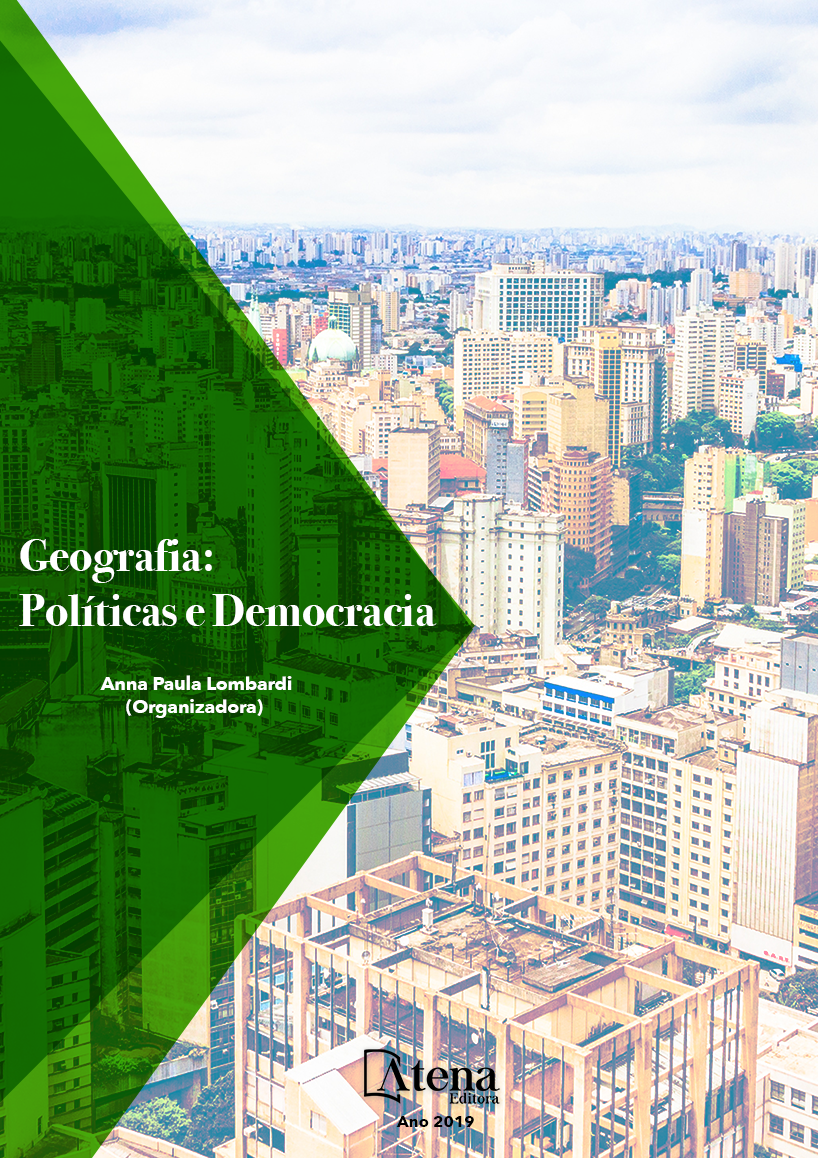
(DES)CONSTRUINDO OS PARADIGMAS DE GÊNERO, RAÇA E SEXUALIDADE NO ESPAÇO GEOGRÁFICO
Essa pesquisa tem como objetivo
analisar e refletir as questões de raça, gênero,
sexualidade e o que a ciência geográfica tem
de relevante que possa interferir no ensinoaprendizagem acerca destas questões
sociais. Como a Geografia pode interferir nas
manifestações de racismo e preconceitos
recorrentes em diversos contextos, entre eles
o da educação, especialmente em sala de aula.
Nesse sentido, considera-se as concepções
que visam entender como a sociedade tem
contribuído para ao aumento ou diminuição
dessas manifestações. A relevância do estudo
se justifica a partir da participação da sociedade
nas concepções de raça, gênero e sexualidade
e manifestações de racismo, discriminação
e preconceito, conforme prescreve Candau
(2012), em suas pesquisas. De acordo com
estes estudos, as diferenças são afirmadas por
intermédio de diversas construções históricas e
político-culturais, consolidando discursos que
sustentam as diferentes formas de exclusão e
violência dentro do âmbito escolar. Diante disso,
cabem problematizações que proporcionem
novos olhares a respeito de como essas
diferenças, seja raça, sexualidade e/ou gênero,
são trabalhadas dentro da escola, incluindo
professores e alunos, de modo a compreender,
também, como a sociedade e a Geografia podem
minimizar ou maximizar esses acontecimentos
a partir de um posicionamento histórico e social,
situando o espaço da educação e as diferenças
nela presentes. Trata-se de uma pesquisa de
cunho bibliográfico em que apontamos autores
tais como: Souza (2008), Ratts (2008) e
Nabozny (2007).
(DES)CONSTRUINDO OS PARADIGMAS DE GÊNERO, RAÇA E SEXUALIDADE NO ESPAÇO GEOGRÁFICO
-
DOI: 10.22533/at.ed.4591919026
-
Palavras-chave: Geografia; Literatura; Paisagem.
-
Keywords: Geography; Literature; Landscape.
-
Abstract:
This research aims to analyze and
reflect the issues of race, gender, sexuality and
the geographical science is relevant to interfere in
the teaching learning about these social issues.
As geography can interfere with expressions
of racism and recurring prejudices in different
contexts, including education, especially in
the classroom. In this sense, considered the
concepts aimed at understanding how society
has contributed to the increase or decrease
of these manifestations. The relevance of
the study is justified from the participation of
society in the conceptions of race, gender and sexuality and manifestations of racism,
discrimination and prejudice, as prescribed Candau (2012) in their research. According
to these studies, the differences affirmed through various historical, political and
cultural constructions, consolidating discourse of the different forms of exclusion and
violence within the school environment. Therefore, fit problematizations providing new
insights about how these differences, whether race, sexuality and / or gender, are
worked within the school, including teachers and students, in order to understand also
how society and geography can minimize or maximize these events from a historical
and social positioning, placing the area of education and the differences it presents.
Authors pointed out such as Souza (2008), Ratts (2008) Nabozny (2007) in a literature
search die.
-
Número de páginas: 15
- José Elias Pinheiro Neto
- Ana Nábila Lima Campos


